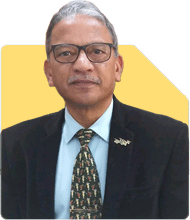R P Yadav | Answer |Ask -Follow
HR, Workspace Expert - Answered on Mar 13, 2024
Over the years, he has been the recipient of numerous awards including the Lifetime Achievement Award from World HR Congress and HR Person Of The Year from Public Relations Council of India.
... more

What are various after retirement career options?
Caretaker:
Duties: Caretakers maintain homes or buildings, ensuring they are safe and in good condition. They oversee cleaning, gardening, plumbing, and manage contracts.
Average Salary: ?2,09,025 per year1.
Office Clerk:
Duties: Office clerks perform basic office tasks such as typing, answering phone calls, processing invoices, and maintaining records. They also handle basic bookkeeping and monitor office supplies.
Average Salary: ?2,41,680 per year1.
Tour Guide:
Duties: Tour guides accompany visitors to locations, providing information about historical, cultural, and religious places. They plan travel itineraries and ensure safety during travel.
Average Salary: ?2,61,548 per year1.
Virtual Assistant:
Duties: Virtual assistants work remotely and perform administrative tasks for businesses or individuals. They handle scheduling, data entry, and other administrative duties.
Average Salary: ?2,83,868 per year1.
Mentor/Consultant:
Share your expertise by mentoring others or offering consulting services in your field.
Driver:
Consider driving for ride-sharing services or as a private chauffeur.
Babysitting/Pet Care:
Offer babysitting services or take care of pets for neighbors or friends.
Freelance Positions:
Explore freelance writing, graphic design, or other creative roles.
Advising Roles:
Use your experience to provide advice to startups, entrepreneurs, or individuals.
Business Opportunities:
Start a small business, such as a boutique, bakery, or consultancy.
Remember, the best option depends on your interests, skills, and personal preferences. Take time to explore what aligns with your post-retirement goals.
You may like to see similar questions and answers below
Nitin Sathe | Answer |Ask -Follow
HR, Recruitment Expert - Answered on Feb 29, 2024
Maxim Emmanuel | Answer |Ask -Follow
Soft Skills Trainer - Answered on Mar 14, 2024
Ramalingam Kalirajan |10923 Answers |Ask -Follow
Mutual Funds, Financial Planning Expert - Answered on Jun 03, 2025
Ravi Mittal |679 Answers |Ask -Follow
Dating, Relationships Expert - Answered on Dec 22, 2025
Ramalingam Kalirajan |10923 Answers |Ask -Follow
Mutual Funds, Financial Planning Expert - Answered on Dec 22, 2025
Ramalingam Kalirajan |10923 Answers |Ask -Follow
Mutual Funds, Financial Planning Expert - Answered on Dec 22, 2025
Ramalingam Kalirajan |10923 Answers |Ask -Follow
Mutual Funds, Financial Planning Expert - Answered on Dec 22, 2025
Ramalingam Kalirajan |10923 Answers |Ask -Follow
Mutual Funds, Financial Planning Expert - Answered on Dec 22, 2025
Ramalingam Kalirajan |10923 Answers |Ask -Follow
Mutual Funds, Financial Planning Expert - Answered on Dec 22, 2025
Ramalingam Kalirajan |10923 Answers |Ask -Follow
Mutual Funds, Financial Planning Expert - Answered on Dec 22, 2025
Ramalingam Kalirajan |10923 Answers |Ask -Follow
Mutual Funds, Financial Planning Expert - Answered on Dec 22, 2025
Ramalingam Kalirajan |10923 Answers |Ask -Follow
Mutual Funds, Financial Planning Expert - Answered on Dec 22, 2025
Ramalingam Kalirajan |10923 Answers |Ask -Follow
Mutual Funds, Financial Planning Expert - Answered on Dec 22, 2025

























